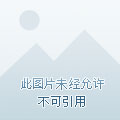Previously, I saw such a unique name in a novel: Gu Yi Ding Sanyu. Such an unusual name naturally aroused my curiosity. I thought about it for half a day, not knowing what the name meant. The author of the novel is also very intimate, and then explains the meaning of the name: this character was originally a drop of spiritual rain that fell in March of the year of the ancient Yiding, so it was called the ancient Yiding Three Rains.
The author's explanation can not be said to be unclear, but there is one place that I have never been able to understand: the year of the second ding. Although we sometimes correspond ethylene propylene to numbers for easy understanding, these are not numbers after all, and even if they are converted into numbers, two or four years, there is no such statement in ancient times. So is Yi Ding the era name of a certain king? I don't seem to have heard of it either. After thinking about it again and again, I can't think clearly, and I can only speculate that perhaps the author is not familiar with the dry branch chronology, which has caused such an error. At that time, I searched for relevant discussions on the Internet, and the author was indeed using the dry branch chronicle, but he was not familiar with the dry branch chronicle, so he made such a joke.

The dry branch chronology, simply put, is the order of the heavenly stem and the earth branch matching, a day dry with a ground branch, starting from the first year, to the end of the year of decay, exactly sixty years, the following year and then starting from the nail, and so on and on. Tiangan has A, B, C, D, E, He, Geng, Xin, Nong, 癸, and the earth branch has Zi, Ugly, Yin, 卯, 辰, 巳, 午, 未, 申, 酉, 戌, 海. Among them, B and Ding both belong to Tiangan and naturally cannot be matched together. It was precisely because the author of the novel did not pay attention to this that he came up with a time like March in the year of B Ding.
People who did not even understand the Heavenly Stem and Earth Branch were able to write Xiu Xian novels, and those who traveled back to ancient times actually relied on modern poetry to impress the literati of that time. The creation of traditional culture as a material has become more and more popular in recent years, and more and more jokes have been made. Similar mistakes abound, such as treating Hezhen as a man's rite of passage, stabbing history and touring the same hall, and describing Daming Palace as the Forbidden City. The reason for this is simple: these authors don't know much about traditional culture, and the reason why they want to connect their works with traditional culture is more for the sake of attention or actual benefits. Most readers now do not know much about traditional culture, but people have always had an instinctive sense of intimacy and curiosity about traditional culture, and works with traditional culture as the theme can always attract more clicks, so many authors try to speculate, cloaked in the cloak of traditional culture, telling stories that are not in line with tradition, once readers find the mistakes in it, they use a sentence of "overhead, don't take it seriously" to prevaricate the past. Traditional culture is just a cloak that can be discarded at any time.
In recent years, the popularity of Chinese online novels abroad has made many Chinese people restless, and some people have directly said that the dilemma of Chinese cultural export has been broken. Probably these online novels are the essence of Chinese culture. However, those who know a little about these novels know that many of these works are just cloaked in the cloak of the East, and their essence is still the values that have emerged from the West since industrialization, and the law of the jungle is the credo of most of the protagonists. Whether it is cultivating immortals, practicing martial arts, or understanding spells, it is just a game upgrade mode with a variety of unknown ancient languages. It is not surprising that these works, which are more Western than the West, can attract a large number of Western readers.
Many works that use traditional culture as a gimmick are just using traditional culture as a stage background, and the whole story is rarely related to traditional culture. Some authors directly regard traditional culture as the opposite, regard Confucianism, Buddhism, and Taoism as the enemies of the protagonists, and try their best to smear the three cultures and mislead batches of readers.